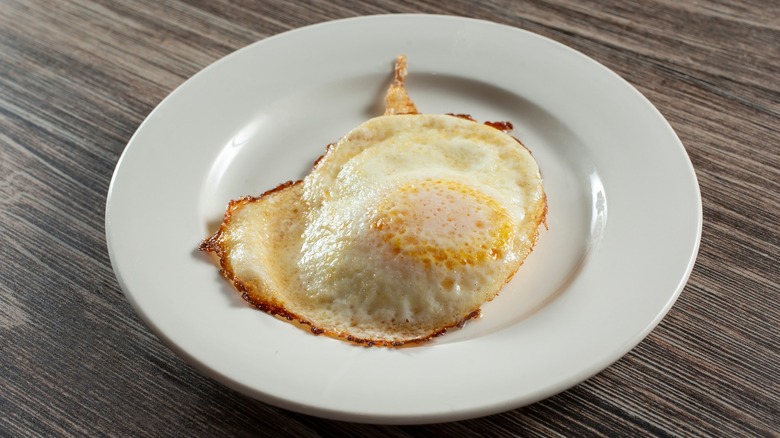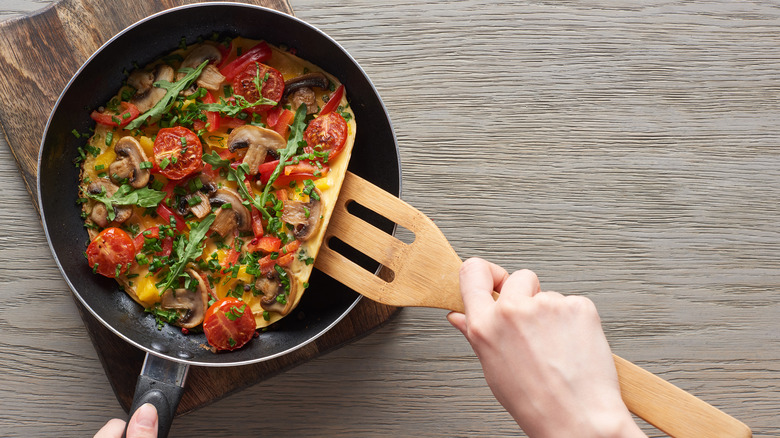When Is The Right Time To Flip Your Eggs?
There are dozens of different ways to cook eggs, but not all of them involve frying pans. Among the ones that do, some don't require any flipping. If you're basting your eggs or frying them sunny-side up, for example, the only time you'll need a spatula is when removing them from the pan. If you like your fried eggs any kind of "over," though (whether it be over-easy, over-medium, or over-hard), you will need to turn them. What differentiates each style is the time it takes to do so.
For each style of egg, you'll first cook it yolk-upwards. (This is the proverbial "sunny side" that you should always try to look on, even when you feel you're going from the frying pan straight into the fire.) It should take about three minutes for the yolk to set, since it needs to be in one piece before you can slide a spatula under it. If you want over-easy eggs, fry them yolk-down for just five seconds. For over-medium, double the time to 10 seconds, turn off the heat, then let the egg sit in the pan for another five seconds. Over-hard eggs, the ones where the yolks have completely set, take a bit longer, anywhere from 30 seconds up to two minutes. With these ones, it doesn't even matter if you break the yolk. You might even want to do this deliberately to help the eggs cook more quickly.
Omelets also need to be flipped
Fried eggs aren't the only kind that need flipping. When making an omelet, you wait for it to cook on the bottom. Then you might fill and fold it before turning it over to cook on the outside. If you're making Julia Child's 14-second omelet (or omelette), the whole thing happens very quickly, and in fact you won't be flipping the omelet so much as shaking the pan and expecting it to flip all by itself.
Other omelet recipes, however, require a little bit longer in the pan. Our classic unfilled omelet is fried for a minute on the bottom, then turned over and cooked for 60 seconds. Our rice paper omelette, however, cooks for two minutes on each side, both before and after the flip. With our omurice recipe, the omelet isn't cooked at all after it's been stuffed with fried rice since the residual heat from the filling is enough to finish off the eggs. Residual heat is what keeps food cooking even when you turn off the burner and is the reason many recipes advise taking eggs off the heat before they're quite done.

